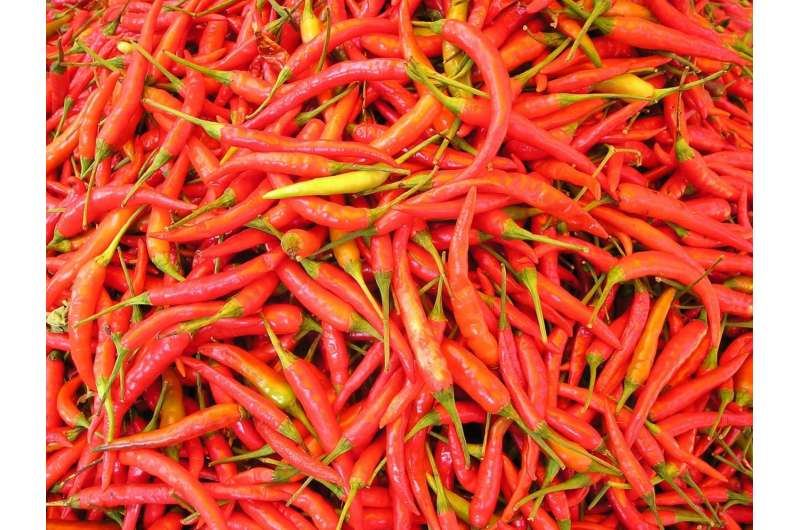Scientists uncover dietary strategy to address obesity using component in red chili

Scientists have discovered a dietary strategy that may address obesity by reducing endotoxemia, a major contributor to chronic, low-grade inflammation (CLGI). The researchers uncovered an interaction between dietary capsaicin (CAP), the major pungent component in red chili, and gut microbiota. This novel mechanism for the anti-obesity effect of CAP acts through prevention of microbial dysbiosis and the subsequent gut barrier dysfunction that can lead to CLGI.
The research is published May 23rd in mBio, an open access journal of the American Society for Microbiology.
Little is known about the role of gut microbiota in the anti-obesity effect of CAP. High throughput 16S rRNA gene sequencing revealed that CAP significantly increased gut health-beneficial butyragenic bacteria and decreased LPS-producing bacteria and LPS biosynthesis. By using antibiotics and microbiota transplantation, the investigators showed that gut microbiota plays a causal role in dietary CAP-induced protective phenotype against high-fat-diet-induced CLGI and obesity.
Moreover, cannaboid receptor type 1 (CB1) inhibition was partially involved in the beneficial effect of CAP. Together, these data suggest that the gut microbiome is a critical factor for the anti-obesity effects of CAP.
















